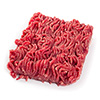Sign In Chef

By using our free meal planner (and the rest of spoonacular.com) you have to agree that you and only you are responsible for anything that happens to you because of something you have read on this site or have bought/cooked/eaten because of this site. After all, the only person who controls what you put in your mouth is you, right?
Spoonacular is a recipe search engine that sources recipes from across the web. We do our best to find recipes suitable for many diets — whether vegetarian, vegan, gluten free, dairy free, etc. — but we cannot guarantee that a recipe's ingredients are safe for your diet. Always read ingredient lists from the original source (follow the link from the "Instructions" field) in case an ingredient has been incorrectly extracted from the original source or has been labeled incorrectly in any way. Moreover, it is important that you always read the labels on every product you buy to see if the product could cause an allergic reaction or if it conflicts with your personal or religious beliefs. If you are still not sure after reading the label, contact the manufacturer.
We also attempt to estimate the cost and calculate the nutritional information for the recipes found on our site. Again, we cannot guarantee the accuracy of this information. Additionally, our nutrition visualizer that suggests that you limit sodium, sugar, etc., and get enough protein, vitamins, and minerals is not intended as medical advice. Similarly, our health tips are based on articles we have read from various sources across the web, and are not based on any medical training. The team behind spoonacular does not possess any medical qualifications and the information may be found to be incorrect or out of date based on future research. If you need help planning your diet or determining which foods (and recipes) are safe for you, contact a registered dietitian, allergist, or another medical professional.
Spoonacular is not responsible for any adverse effects or damages that occur because of your use of the website or any information it provides (e.g. after cooking/consuming a recipe on spoonacular.com or on any of the sites we link to, after reading information from articles or shared via social media, etc.)
×$1.82 per serving

37 likes

Ready in 45 minutes

Spoonacular Score: 66%
The recipe All American Sloppy Joes could satisfy your American craving in roughly 45 minutes. This recipe serves 4 and costs $1.82 per serving. Watching your figure? This dairy free recipe has 507 calories, 25g of protein, and 28g of fat per serving. A couple people made this recipe, and 37 would say it hit the spot. It works well as a budget friendly main course. This recipe from Foodista requires shallots, burger buns, garlic cloves, and ground beef. Taking all factors into account, this recipe earns a spoonacular score of 64%, which is solid. Try Sloppy Chori-Joes (Chorizo Sloppy Joes), Mushy Joes (Sloppy Joes Meatless Cousin) (Meatless Monday), and Mushy Joes (Sloppy Joes Meatless Cousin) (Meatless Monday) for similar recipes.
Sloppy Joe works really well with Pinot Noir, Malbec, and Zinfandel. All these red wines pair well with a sloppy joe's ground beef and tomato sauce. The Goldeneye Gowan Creek Vineyard Pinot Noir with a 4.9 out of 5 star rating seems like a good match. It costs about 80 dollars per bottle.
 Made in the style preferred by our founder, Dan Duckhorn, this wine exudes richness, depth, dark fruit and structure. On the palate, it is deep and lush, with layers of wild blackberry and plum pie supported by a streak of acidity that adds definition to the flavors, while drawing the wine to a lingering finish with hints of lavender, pennyroyal, and Asian spices.
Made in the style preferred by our founder, Dan Duckhorn, this wine exudes richness, depth, dark fruit and structure. On the palate, it is deep and lush, with layers of wild blackberry and plum pie supported by a streak of acidity that adds definition to the flavors, while drawing the wine to a lingering finish with hints of lavender, pennyroyal, and Asian spices.
» Get this wine on Wine.com


























Read the detailed instructions on Foodista.com – The Cooking Encyclopedia Everyone Can Edit